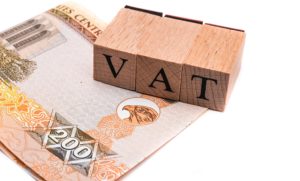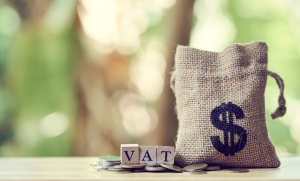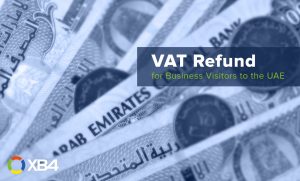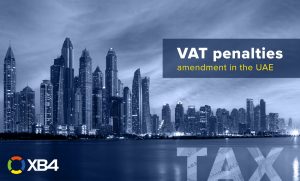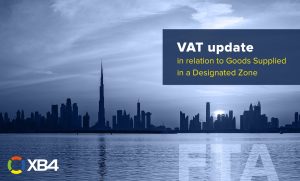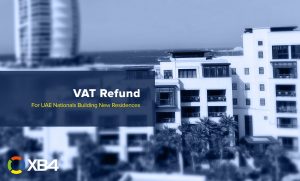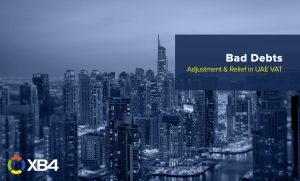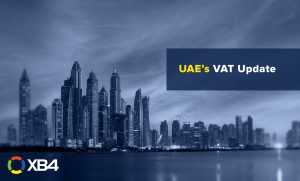
Years and years of tax-free lifestyle came to an end when some of the GCC (Gulf Cooperation Council) members, including the UAE, introduced value-added tax (VAT) in their regions on January 1st, 2018. The VAT rate, set at 5%, caused waves of arguments among the people in UAE. The country has now seen 2 great years of VAT implementation and this was probably the best decision made by the higher authorities.
What is VAT in the United Arab Emirates?
Value-added tax or VAT is a form of indirect tax that a consumer pays to the government on the purchase of goods and services. Companies act as mediators in this arrangement where they collect tax from consumers on behalf of the government and pay accordingly.
The VAT introduction in GCC aimed to uncover new revenue streams and reduce reliance on oil income.
It all started when a sharp fall in oil prices was seen in late 2014, oil-exporting nations were all over the news. The oil price reductions were a huge blow on the oil-exporting country’s GDP, especially the UAE, where oil contributed around 35% of the government’s income. In the aftermath of deflation, many GCC countries, including Saudi Arabia and UAE, sought to reduce their dependence on oil.
The introduction of VAT in the UAE has undoubtedly boosted the government’s revenue and diversified the economy away from oil dependence. According to the Federal Tax Authority (FTA), VAT collection in 2018 was AED27 billion and AED37 billion in 2019. However, it would be too early to assess the impact of VAT on the UAE’s GDP.
In a recent statement by Hamid Obaid Al Tayer, the Minister of State for Financial Affairs and Chairman of the Board of Directors of the Federal Tax Authority (FTA), “It requires a period of three to five years to study the impact of VAT on the country’s economy. We need ample time to compile sufficient data to evaluate the effects of the tax. The only study that was conducted in 2018 is just not enough. It’s therefore too early to rely on such data to assess the impact of VAT.”
What categories of goods and services fall under VAT?
The current VAT rate is 5% across the UAE. The implemented VAT rate, however, is a small percentage when compared to other countries around the globe. Two types of supplies fall under VAT, exempt and taxable supplies.
Exempt supplies are those supplies that are unaffected by the implementation of the tax in UAE. No tax is charged on such supplies. Domestic air transportation and life insurance are a few examples of exempt supplies.
While taxable supplies have been further classified into standard supplies and zero-rated supplies.
Standard supplies have an impact of a 5% VAT rate. The products that are categorized as standard or taxable supplies include consumer items, commercial property transactions, jewelry, medicines, stationery, vehicles, electronics and gadgets and second-hand goods.
Zero-rated supplies or services are those on which the rate of VAT is 0%. Suppliers of zero-rated supplies are allowed to reclaim their input VAT. Healthcare, education, international transport and export are a few examples of zero-rated supplies.
Who can register under VAT in UAE?
If you have just established a new company or have an existing one in UAE then you need to consider whether your entity is eligible to register for VAT. There are certain criteria that an entity is supposed to meet before proceeding towards VAT registration. Let’s take a look at the different types of registration that apply to an entity.
- Mandatory VAT Registration: As per FTA, individuals or entities engaged in business activity have taxable supplies exceeding AED 375,000 are required to register by law. Also, if a newly established entity anticipates that taxable supplies will exceed the threshold of AED 375,000 in the next 30 days then they should register themselves under UAE VAT.
- Voluntary Registration: The companies that do not meet the mandatory threshold criteria of AED 375,000 can opt for registration if they meet the two main criteria.
First the entity’s annual turnover should exceed AED 187,500. Secondly, the taxable expenditure of the company in a 12-month duration should exceed the amount of voluntary registration threshold.
Mostly entities choose to opt for voluntary registration to prepare themselves for the VAT mechanism once the minimum amount for the mandatory registration criteria has been met.
- Exempted Registration: If a business has supplies with values below the voluntary registration threshold of AED 187,500, they are not allowed to register under VAT.
The VAT registration process requires the submission of a certain set of documents to the Federal Tax Authority. Submitting incomplete or incorrect documents may significantly delay the approval process. Also, some sections of the application documents can only be filled in Arabic. Hence, it is necessary to do your homework and prepare your documents accordingly or you may even hire a tax agent to make the registration process swift and smooth for yourself.
How to stay compliant with VAT?
Once you have registered your company under VAT, the entity’s operations, ways of working, strategies, accounting systems and a lot more will have to be adjusted accordingly.
First and foremost, the company will have to evaluate the current pricing strategies to accommodate the impact of VAT. Also, the effect of VAT on the company’s cash flow will need to be assessed. A VAT registered company will need to maintain compliant bookkeeping and adopt best practices for recording purchases and expense transactions in accordance with the VAT framework. VAT registration may impact every aspect of the company’s core operation starting from bookkeeping, financial reporting, pricing, supply chain, technology and maybe even human resource mix.
In terms of documentation, contracts and other legal documents will have to be revisited. Invoices and credit notes will need to be designed according to FTA-approved formats. Make sure that the correct amount of VAT has been charged on the relevant supply. Errors or non-compliance may attract heavy penalties in the future.
A VAT registered business is also required to submit a VAT return to FTA at the end of the tax period. This involves a monthly or quarterly submission of the summarized value of the standard rated supplies, zero-rated supplies, exempt supplies, imports and reverse charge transactions made during the given tax period. In cases where your company has an input VAT higher than the output VAT for the period then they may seek reimbursement from the tax authorities. Failure to file tax returns in an accurate and timely manner may result in penalties.
If a non-resident is involved in business activities and making taxable supplies then they are liable for VAT registration.
Failure to register for VAT is an act of non-compliance that would invite penalties and legal complications. Moreover, this may result in the customer losing trust and confidence due to incompliant practices. In the worst scenarios, businesses can even lose their legal status.
When a local business in UAE imports goods and services, it is likely that the supplier may not be registered in the country and hence VAT cannot be charged on supplies. In such a case, the importer of goods or services is made liable to pay the VAT. Since the liability for VAT is imposed on the importer, this type of arrangement is known as the reverse charge mechanism.
As a tax-registered entity, you are obliged to inform the tax authorities within 20 days of the change.
No, as per UAE VAT laws, only VAT registered individuals or companies can claim the input tax credit.
You will require a tax registration number (TRN) of the company. Visit FTA’s website, look for TRN verification tab on the right and enter the details to check the company’s tax status.







